Crash Course’s episode this week is very timely with Donald Trump’s campaign’s consistent talking point about China taking US jobs, Bernie Sanders’ championing of the poor, and the general buzz about how low wages can rise. This post might get lengthy, but stay with me. Let’s dive in:
The Big Difference-Maker in Reducing Poverty
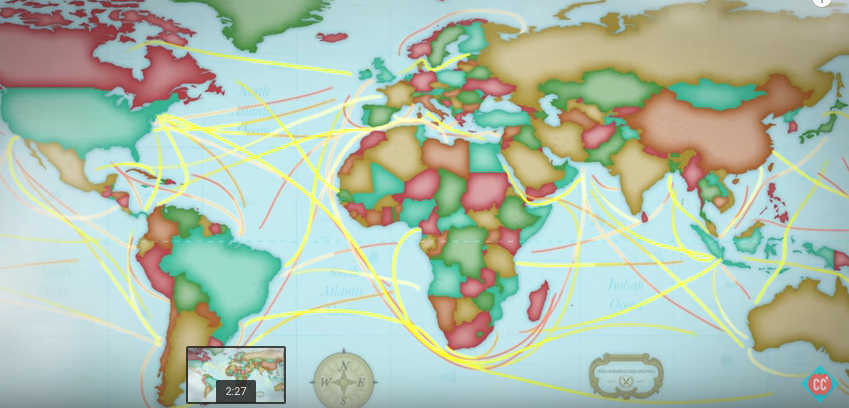
The greatest contributor [to reducing extreme poverty] is globalization and trade. The world’s economies and cultures have become more interconnected and free trade has driven the growth of many developing economies.
Crash Course attributes global trade as the leading contributor to reducing poverty. This is consistent with general economic principles, namely that trade necessarily makes both parties better off.
However, Crash Course also states:
Better access to education, humanitarian aid, and the policies of international organizations like the UN have made a difference.
This is up for debate, depending on which examples you cite. Foreign aid may help, but it also may do a lot of damage by disrupting the local economy and creating a prize for political factions to fight over. Additionally, The UN makes hundreds of policies that impact international trade; some help and some do not. The UN is not solely a global trade organization, and sometimes their other goals conflict with their goal to increase free trade.
Opponents of Global Trade
While Crash Course does come down in favor of global trade, they don’t do a very good job at rebutting the arguments against global trade.
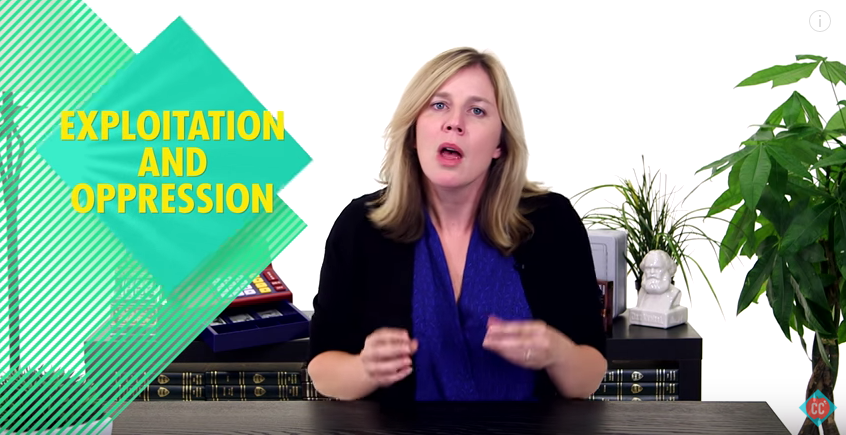
But not everyone agrees. Opponents of globalization called outsourcing of jobs “exploitation and oppression”, a form of economic colonialism that put profits before people. A few call for protectionist policies like higher tariffs and limitations on outsourcing.
Crash Course never responds to this objection to global trade or the argument’s proposed solution. If someone is worried about “exploitation and oppression,” (i.e. low wages and poor working conditions), higher tariffs and limitations on outsourcing do not help these workers at all. These policies protect domestic businesses from international competition, but it does not improve the working conditions or the pay of foreign workers. Furthermore, an economist would argue that by reducing the demand for these foreign products (through tariffs or limits on outsourcing), you are reducing the revenues of these businesses and reducing the value that these workers provide. This puts downward pressure on their wages.
Improvement in wages and working conditions come from economic prosperity and competition for labor; growing businesses that need employees will have to compete for workers, and those businesses that provide either improved conditions or wages will attract the most workers from other sectors of the economy.

But others focus on the foreign workers themselves by demanding they receive higher wages and more protections. The root of many arguments against globalization is that companies don’t have to follow the same rules they do in developed countries. Some developing countries have no minimum wage laws. They don’t have regulations that provide safe working conditions, or protect the environment. And although nearly every country bans child labor, those laws are not always enforced.
The implementation of laws that prohibit certain working conditions or wages does not necessarily benefit workers. As this episode infers toward the end of the video, if we implemented the laws on wages and working conditions of developed countries onto developing countries, it would not benefit these countries as it would eliminate most of the jobs. Employers could not afford to abide by the laws and remain profitable, and the result would be fewer businesses and fewer people employed.
As for the debate on child labor, OxFam research suggests that prohibiting child labor results in many children turning to black market activities such as prostitution in order to sustain themselves. Child labor does seem terrible, but child prostitution seems much worse. Please check out that OxFam report linked above, but be prepared that it’s some grim stuff.
Also, while many developing countries don’t have a minimum wage, neither do many developed countries. Norway, Singapore, and Switzerland aren’t “exploiting” their workers more than Andorra and Saudi Arabia (where there are minimum wage laws), so we can dismiss the implied assertion that minimum wage laws are a requirement of developed countries.
Instead of rebutting these arguments against global trade head on as we just did, Crash Course instead mentions that workers might not be mistreated, even without laws.
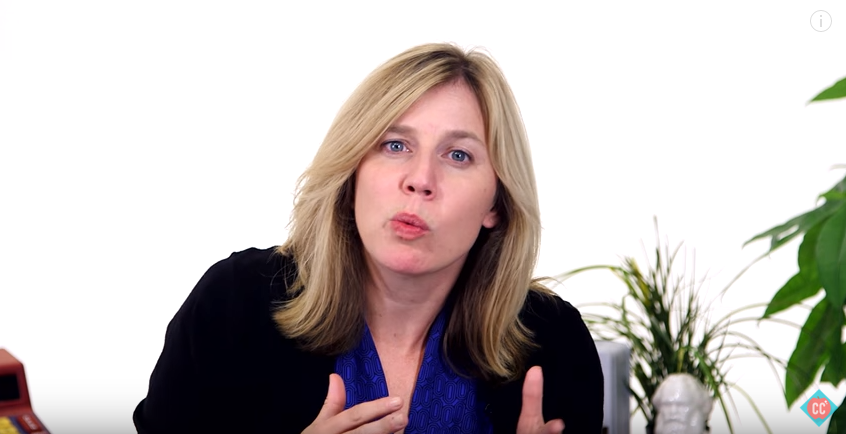
First, public awareness is growing, along with pressure from the international community to take steps to protect workers. For example, the U.S. produces an annual publication called “The List of Goods Produced by Child Labor or Forced Labor”. If a company is buying products from that list, they’re likely to get blasted by officials and the media. So awareness is the first step to improvement.
Okay, that doesn’t sound very comforting. What else you got?
The second step comes from those that support globalization. The pro-globalization set argued that as developing economies grow there are more opportunities for workers, which leads to more competition for labor, and higher wages.
This is Crash Course gold. I wish they had fleshed it out and used it to directly rebut the arguments against global trade, but I guess you can’t ask for everything.
The Environment, Pollution, and Climate Change
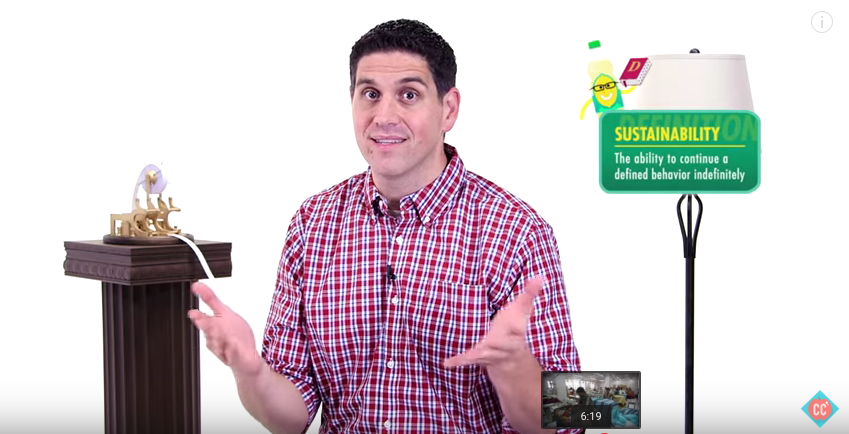
Perhaps the strongest argument against globalization is its lack of sustainability. Many experts don’t think the planet can sustain a growing global economy. Deforestation, pollution, and climate change aren’t gonna fix themselves […] Globalization has helped millions of people get out of extreme poverty, but the challenge of the future is to lift up the poor while at the same time keeping the planet livable.
This argument is presented pretty vaguely, and it’s hard to argue against it. After all, pollution is bad (for multiple reasons), and if our planet becomes unlivable, then the global economic output will become zero. All of this is true.
The problem is that there are no specifics in this argument. Given that Climate Change is caused by man-made CO2 activity (which invites a completely different argument), how much do developing countries contribute to total CO2 omissions? How do governments of developing countries enforce property rights in relation to pollution?
By arguing vaguely, you basically ensure that any global trade advocate will agree with you, and by doing that you can start talking about what the government should do to resolve these problems. However, the conversation of “What should the government do about pollution?” and “How can developing countries get out of poverty?” are two very different topics and require very distinct discussions. This is almost a Red Herring.
Microcredit
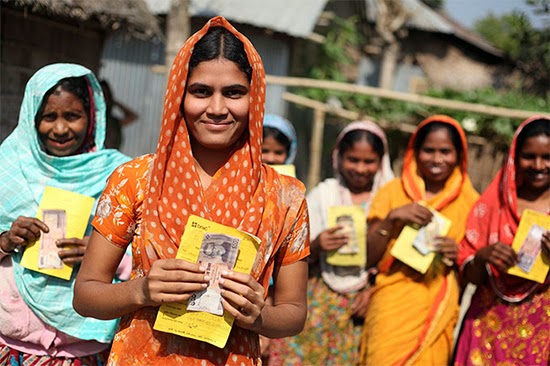
Crash Course talks a good bit about Microcredit, which they tout as a success, even though a fair amount of researchsuggests that it is not effective at helping people get out of poverty. In fact, if you google “Microcredit Helps Poverty,” there are more articles talking about why it doesn’t work than why it might.
In economic theory, it makes sense why microcredit would be successful: In developing countries, banks do not have the capital to fund riskier small businesses that do not have much capital. Instead, foreign lenders (who are in fact, just regular Joes in developed countries) lend their money to a small business abroad, watch it flourish, and get paid back. The average Joe feels good (and may collect some interest on the loan) and a small business is expanded in a developing country. Everyone wins.
However, in practice, these loans don’t always go into the small business, and when they do, it does not have a noticeable impact on the business owner’s standard of living. Some journalists have highlighted the rare successes of Microcredit, but they are generally the exceptions. In the end, these Microcredit transactions will likely help those who receive it, but it is not the Cure for Poverty (or anywhere close) that it was theorized to be a decade ago when the idea gained traction.
I am very surprised that Crash Course declares Microlending to be a great success at helping people out of poverty. The evidence suggests otherwise.
Conclusion
Crash Course ends this episode on a bit of a sour note:
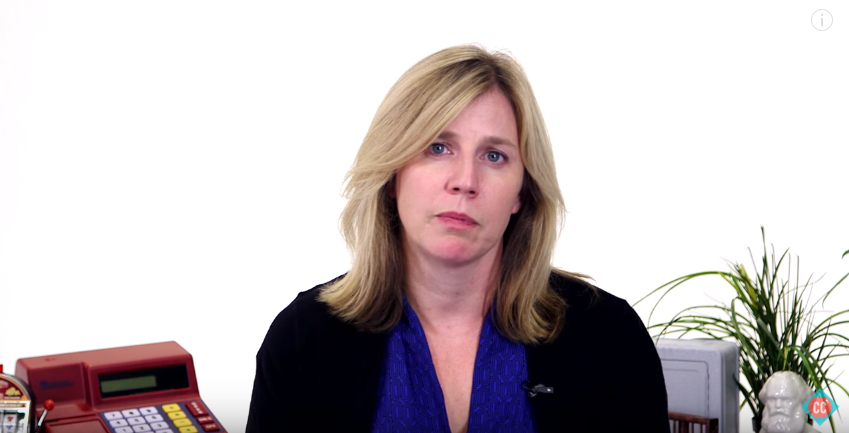
Many of the people who emerged from extreme poverty in the last 25 years have jobs, wages, and working conditions that would be unthinkable in the developed world. Economists say that’s okay, it’s progress, but it’s progress that’s awfully hard to stomach.
It’s difficult to remove our 21st-century-developed-world lenses to see the great decline in extreme poverty throughout the world, since those who are out of extreme poverty still have it bad compared to the developed world. It is hard to stomach if you compare the developing world to the developed world, instead of comparing the developing world to the developing world 25 years ago. It might also be hard to imagine the wages and working conditions of Americans one-hundred years ago, even though they were among the richest in the world at the time.
Although it may be hard to stomach, you should always ask “compared to what?” Would the developing countries be better off or worse off today if they had implemented wage controls and regulations on working conditions 25 years ago? Economic theory suggests they would be much worse off, even though it might make you feel better that these rules are in place.
Crash Course Criticism will be on a schedule from here on out, releasing posts every Wednesday, but possibly more frequently. Thanks for the support!
Like what I wrote? Hate it? Drop some feedback in the comments.